If your baby is born without eyelashes, you may be wondering, “Do newborns have eyelashes when they first enter the world?” The answer to this question? It depends! There are many factors that contribute to whether or not a baby will have eyelashes when they’re born. If you are interested in learning what those factors are, then stick around.
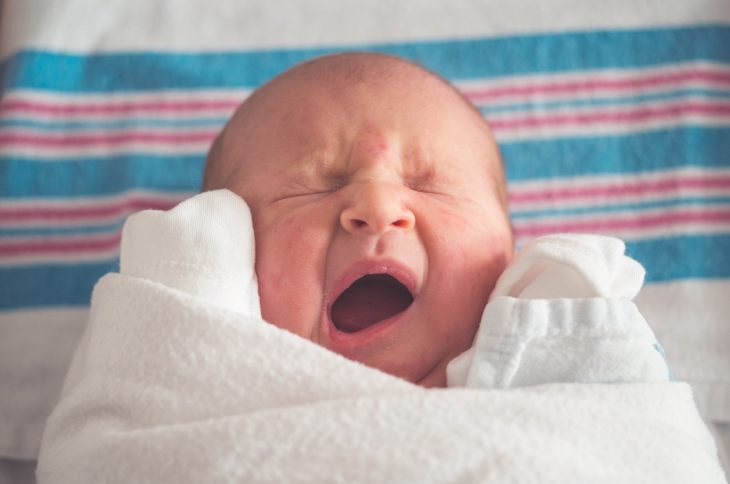
Are Babies Born With Eyelashes?
So, are babies born with eyelashes? Yes and no. Babies can be born with or without eyelashes. However, most babies do have eyelashes once born.
When gauging to see whether or not your baby was born with eyelashes, you’ll need to look closely. Baby lashes, like the rest of the hair on their body, may be fine and light. Because of this, it can sometimes be hard to see baby eyelashes even when they’re there.
To be sure, take your baby out into the sunlight on a sunny day so you can get a good view. If it isn’t sunny outside, consider taking your baby into a brightly-lit room. Whatever you do, do not shine a flashlight in your baby’s eyes as some often suggest. Although this may not cause permanent damage to your baby’s eyes, it will still likely be uncomfortable and possibly painful to your little one.
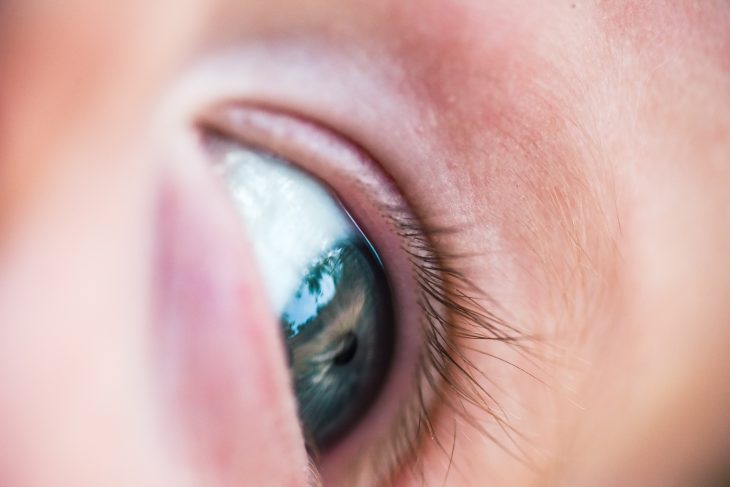
When Do Eyelashes Grow on Newborn?
Most newborns born without eyelashes will get lashes by age 2. Of course, the eyelashes may grow in much sooner than that, but typically, this is the latest you’ll see them grow in.
Bear in mind that most babies will have eyelashes already as these tend to develop in the womb. Remember that these eyelashes can be blonde, soft, and fine, and as a result, may be very difficult to see.
When Do Babies Get Eyelashes?
You may be wondering, “What week do eyelashes develop?”
In general, babies develop eyelashes while in utero. They grow during your second trimester, somewhere between 20-22 weeks. It is for this reason that we believe that most babies will already have eyelashes when they are born. Still, if you notice that your baby has none, don’t panic. Your baby’s eyelashes will certainly eventually grow in due time.
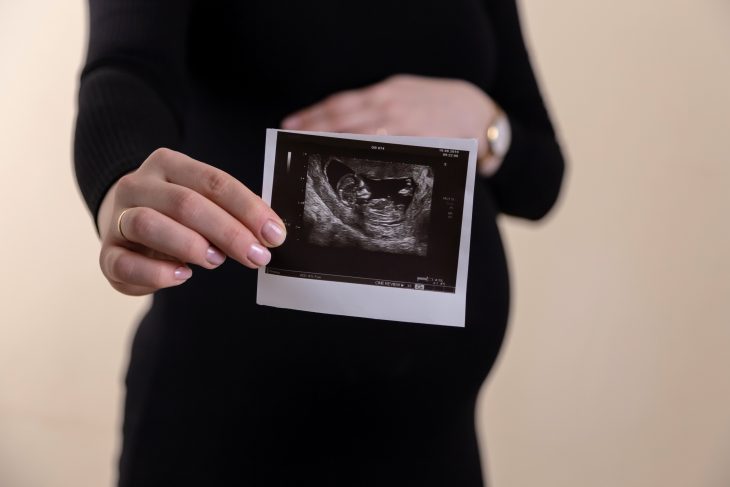
Do Newborns Have Long Eyelashes?
Are all babies’ eyelashes long? That depends. Just like newborn baby hair can range from being wildly full to perfectly bald, eyelashes too can appear thick and also barely there. Therefore, you can expect that there are some newborns with long eyelashes and some without any at all. The thing to keep in mind is that all babies are different, and oftentimes, the thickness of their lashes is dependent upon genetics.
It is also helpful to remember that because babies’ heads are small, their lashes can seem longer than they actually are. This has to do with the proportion of their head size or the length of their lashes. As the baby grows older however the lashes may appear less dramatic and will be more proportional to their head size.
My Baby Has No Eyebrows or Eyelashes
Help! My baby has no eyebrows or eyelashes!
Sound like you? Relax.
A newborn with no eyelashes is nothing to worry about, especially considering that many newborn lashes are short, light-colored, and fine to begin with. Sure, some babies’ eyelashes are thick, long, and full, but some adult lashes are this way too! Yet, there are also adults with thin and fine lashes. Babies are the same way. Some have them, and some don’t. No matter which way you slice it, your baby is beautifully and uniquely one-of-a-kind. Even if he or she is born with no eyebrows or eyelashes!
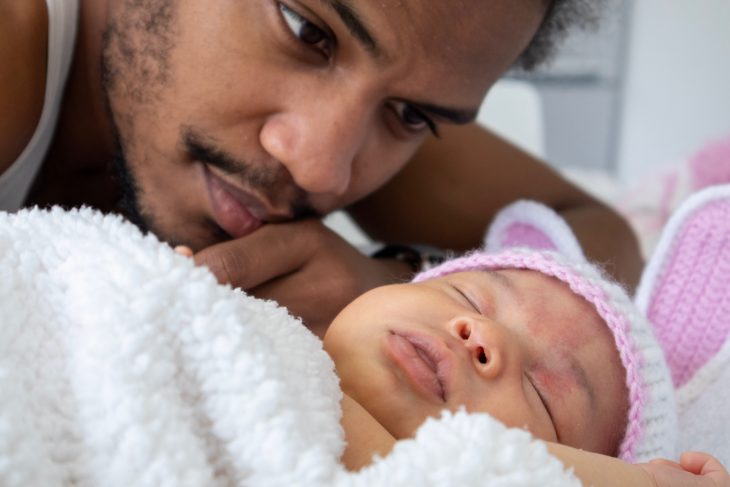
How to Make Baby Eyelashes Grow Longer?
If you’re very concerned about the length of your baby’s eyelashes, we recommend you exercise patience.
There are many people out there that will advise you to cut your baby’s lashes or to apply vaseline or oil to their eyes.
Yet, there are a couple of problems with these approaches. Let’s look at them in detail.
Cutting a Baby’s Lashes
First and foremost, putting scissors close to a baby’s eyes in order to cut them is extremely dangerous. Not only are babies notoriously wiggly, but you too, can easily slip and make a mistake that could cost your baby his or her eyesight.
Never come within close proximity with scissors to your baby’s eyes no matter how tiny the scissors are.
The idea behind cutting a baby’s lashes is that, supposedly, cutting the lashes will cause the hair to grow back thicker than before. This is also a common school of thought concerning hair on top of the head but unfortunately, science shows us that this simply isn’t true.
A baby is born with the number of hair follicles they have, and no amount of cutting is going to change that. Thus, by jeopardizing your child’s safety for the sake of thicker lashes you may not even get the results you are looking for. And you may have even damaged your baby’s lashes by cutting them off to boot!
Rather than follow this approach, we recommend you leave your baby’s lashes alone. By simply waiting it out you’ll see that your baby’s lashes come in and grow darker with time even if it doesn’t happen as quickly as you wanted.
Applying Oil or Vaseline to Your Child’s Eyes
We’ll admit that this technique isn’t as risky as putting scissor blades near a baby’s eye, but we don’t recommend slathering oil onto your baby’s lash line either. If you want to know why this isn’t recommended, just try doing it to yourself. You’ll likely notice your vision goes blurry as the gunk eventually makes its way into your eyeballs, all of which can take a while to clear up.
Again, rather than confuse and possibly scare your baby by putting oil in their eyes, it is best to just leave their eyelashes alone. The lashes will eventually grow in, and you’ll likely be left wondering what you were worried about in the first place.
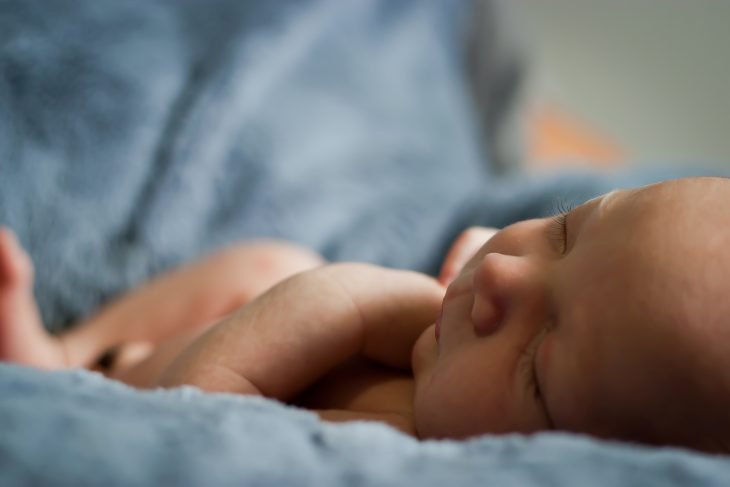
Baby Eyelashes Straight
Lastly, if you notice that your baby’s eyelashes are straight, remember that this also isn’t a cause for concern. Just like the color and texture of baby hair differ, the contour of baby lashes can vary as well. Some people have curled lashes and some baby lashes are straight. All fall within the realm of “normal” and should not cause you concern.
Do Newborns Have Eyelashes? Most of the Time Yes!
Remember that most babies are born with eyelashes. Eyelashes tend to develop around weeks 20-22 in the womb, however, they may be light, fine, and difficult to see at birth. Still, even if your baby is born with seemingly no lashes, you shouldn’t seek to “cure” the issue. Simply wait for the lashes to grow in, which will likely happen before your child’s second birthday–at the latest!
If you notice that your baby’s lashes are taking a while to grow in and you are concerned, talk to your pediatrician. He or she can conduct the proper assessments to find out if there are underlying causes for the lack of eyelash growth.
Do Newborns Have Eyelashes – FAQs
In most cases, you should leave the eyelash alone. The eyelash will eventually work its way out of the eye. If you must, you can use a moistened cotton ball to gently swipe the eye (while it is closed) to encourage the movement of the lash to the outer corner of the eye. However, if this doesn’t work and is causing your baby discomfort, be sure to stop. Never poke anything, including your fingers, into your baby’s eye.
No. There are some babies that have full, thick, and dark eyelashes. It all depends on genetics.
The answer to when do babies’ eyelashes and eyelashes get darker varies. It will happen at different times for different children. Try to be patient with the process, and don’t try to encourage growth. The eyes are a sensitive place, so you’ll want to avoid exploring intrusive and dangerous natural remedies when addressing this concern.
Leave a Reply